PERSONAL EFFECTIVENESS AASIGNMENT SAMPLE
Managers or CEOs of every business organisation are required to have effective leadership traits in order to maximise workplace efficiency and enhance the chance for accomplishing business goals.
Personal effectiveness in this context can be considered as utilisation of personal skills, energy, and talents to reach specific target goals. On the other hand, it can be outlined that skills of personal effectiveness helps individuals to develop and manage their skills in such a way that it improves their professional as well as performance effectively.
Most of the entrepreneurs focus upon Sundar Pichai for his courteous nature, resilience along with his potential to stay away from workplace politics, which helped him to enhance his career growth and become a dignitary.
The following report aims to provide an in-depth analysis about the key concept behind personal effectiveness by considering the case of global leader Sundar Pichai, the CEO at Google.
The behaviour and skills that make Sundar Pichai to become an effective global leader will be highlighted briefly. By considering suitable theoretical frameworks, evaluation about the positive as well as negative elements identified in Sundar Pichai’s behaviours and skills along with their impact will also be illustrated in this report.
Findings and Analysis
b. Case study Review
Application of theories and framework
Skills and Behaviour of Sundar Pichai
The CEO of World’s leading and largest Search Engine Google, Sundar Pichai, has acquired global popularity with his simplicity, work deduction, and poised demeanour. It is identified that most of the entrepreneurs consider the skills and behaviour Sundar Pichai incorporated to foster his career.
The world is found to be associated with different innovative ideas and Sundar Pichai is sharing the same view (Magazine, 2021).http://PERSONAL EFFECTIVENESS AASIGNMENT SAMPLE According to Mr. Pichai, every individual at any point of life requires to enhance their critical and innovative thinking skills to gain career opportunities.
In addition to this, Pichai also highlights that every Entrepreneur requires to focus on the activities that can serve as beneficial for enhancing their business growth. Sundar Pichai also believes that with the technological revolution, individuals are required to reinvent and update themselves to grab competitive advantages within the dynamic business environment.
A report published in 2020 highlights that most of the entrepreneurs are found to be intending to drive business innovation; however, they failed to get success. Sundar Pichai in this context mentioned that dreaming and rarely undertaking any kind of efforts might not serve as effective for entrepreneurs unless they put proactive efforts to obtain the target (Singh, 2020).http://PERSONAL EFFECTIVENESS AASIGNMENT SAMPLE
Leaders are the key pillar of any business organisation upon which overall organisational success and failure depends. According to Smith et al. (2019), leaders are required to focus upon obtaining their career success along with others.
This statement signifies that leaders are required to work collaboratively within their respective team to maximise the chance of obtaining organisational long-run success along with career growth. In the context of Sundar Pichai, it is identified that he acknowledges failures and undertakes risk until he succeeds. With this belief, Pichai continuously pushes youth to step out of their comfort zone and if required they must take tough calls for their careers.
It is identified that Pichai maintains an effective and flexible workplace environment and works collaboratively with his team members in order to meet organisational targets (Prospursity, 2021).http://PERSONAL EFFECTIVENESS AASIGNMENT SAMPLE Persistence of these skills and behaviour helps Pichai to attract people and establish a strong team through which they keep their business competitive within the global market.
Lee and Li (2020) mentioned that communication is considered as key aspects for maintaining a suitable flow of operation at the workplace. Empowering people is considered as one of the key and primary skills of Sundar Pichai that helps him to become an influential personality for others.
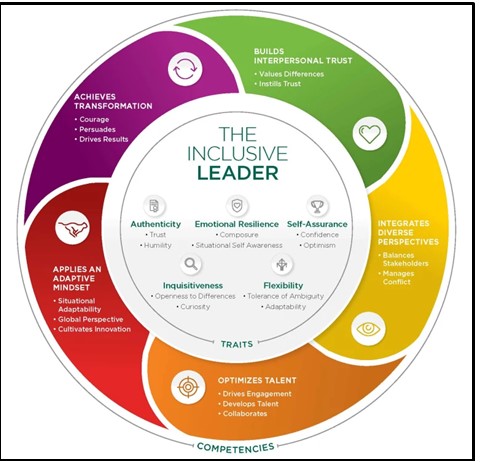
Figure 1: Inclusive Leadership style
(Source: Randel et al. 2018)
For example, Sundar Pichai is found to tune his communication according to the nature and mannerism of the audience with whom he interacts in order to match with their thought process.
Sundar Pichai is also considered as one of the strongest communicators who ensure that every individual working within his team understands the targeted mission. While considering Sundar Pichai’s leadership style, the Inclusive leadership concept is found to be followed by him.
The key reason behind this statement is that Pichai builds a suitable relationship with his team members. Adding to this, instead of focusing only upon his success, Pichai emphasised upon the success of his team members.
As per Randel et al. (2018), inclusive leaders have the potential to lead and manage heterogeneous group effectively, while showing respect to the other’s uniqueness in a bias-free and emphatic manner. This kind of capability is found to be associated with the behaviour or skills identified in the case of Sundar Pichai (Refer to appendix).
Positive elements of skills and behaviour of Sundar Pichai and its impact
Leaders are responsible to influence their team so that they could show their commitments and enhance operational efficiency in a systematic and effective manner.
According to Ahmad (2018), effective leaders or enterprises had the potential to manage their team members in such a way that they could meet organisational goals and targets within a specified time span.
While talking about the positive elements in Sundar Pichai’s behaviour and skills, it identified his polite nature, and soft-spoken behaviour. Colleagues of Sundar Pichai often describe him “thoughtful” as Pichai also speaks “thoughtfully” and influences others in suitable manner.
For example, Pichai always focuses upon improving the skills of their team members by providing required training. This positively affects obtaining business success by allowing team members to enhance their skills and update themselves with the change in business operations or market trends (Nahavandi and Krishnan, 2017).http://PERSONAL EFFECTIVENESS AASIGNMENT SAMPLE
Simplicity along with resilience is considered as another effective skill of Sundar Pichai that makes him successful. For example, introducing “Google Chrome” and establishing it as “undisputed market leader” can be considered as one of the effective areas of evidence regarding Pichai’s resilience skills.
Collaboration can be considered as another skill of Sundar Pichai that he considered to avoid confrontation and conflicts.
For example, Pichai performs with his team members and supports them at each phase of their activities to enhance overall organisational success (Gill, 2019).http://PERSONAL EFFECTIVENESS AASIGNMENT SAMPLE In addition to this, while undertaking any kind of organisational decision, Sundar Pichai always focuses upon the perspective and requirements of their employees.
The interpersonal skill Sundar Pichai portrays helps to differentiate him from other business leaders. Most of the time, it is identified that Sundar Pichai is considered an “Affiliative leader”.
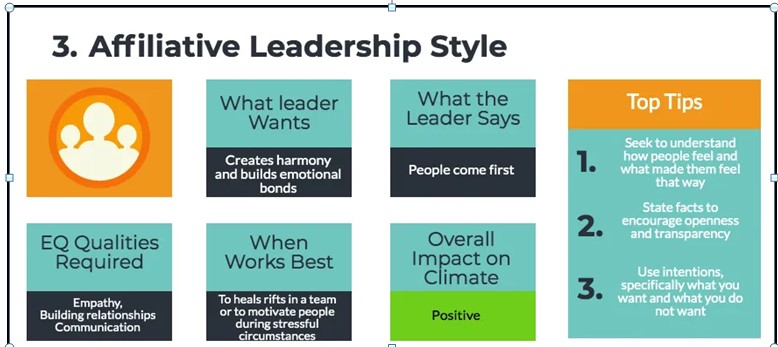
Figure 2: Affiliative Leadership style
(Source: Wachira et al. 2018)
In relation to the above figure, Affiliative leaders always put “people first” emphasising upon a harmonious workplace environment and establishing emotional bonds with team members.
According to Wachira et al. (2018), Affiliative leaders have the potential in terms of influencing the team, motivating and encouraging them in such a way so that they could proactively within their respective field of work.
This kind of skills and behaviour is found to be identified in the case of Sundar Pichai. In this regard, considering the overall positive skills of Sundar Pichai, Situational Leadership theory can be interlinked.
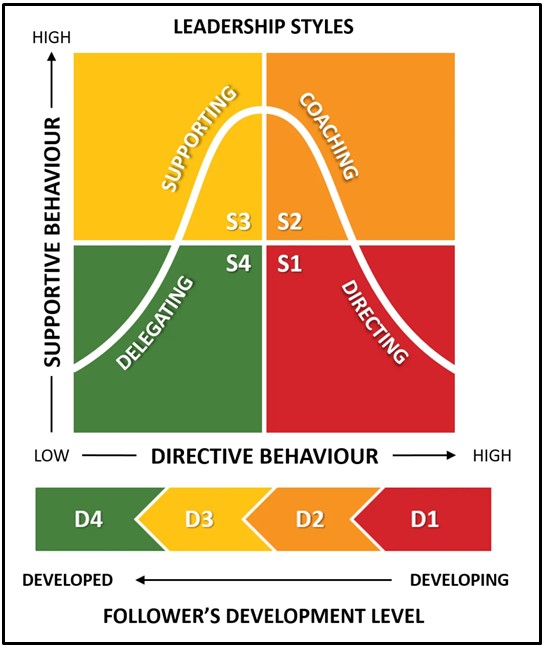
Figure 3: Situational Leadership theory
(Source: Cote, 2017)
According to Cote (2017), situational leadership can be referred to those leaders who follow or adopt different leadership styles according to the need of specific situations.
Adding to this, these leaders implement a suitable leadership style for the development of their team members, which positively impacts upon overall operational activities. It is considered as an effective theory concept as it helps leaders to consider team needs and allows to establish suitable balance within the entire workplace.
This concept is found to be similar to the behaviour or skills Sundar Pichai has. The following figure highlights the fact that Sundar Pichai follows a leadership framework composed of several aspects such as empathy, care, avoiding workplace politics, being an effective listener, and others (Visual, 2021).http://PERSONAL EFFECTIVENESS AASIGNMENT SAMPLE Key factor associated with the leadership framework that Sundar Pichai follows, directly and positively impact upon building strong team and market competitiveness across the global market.
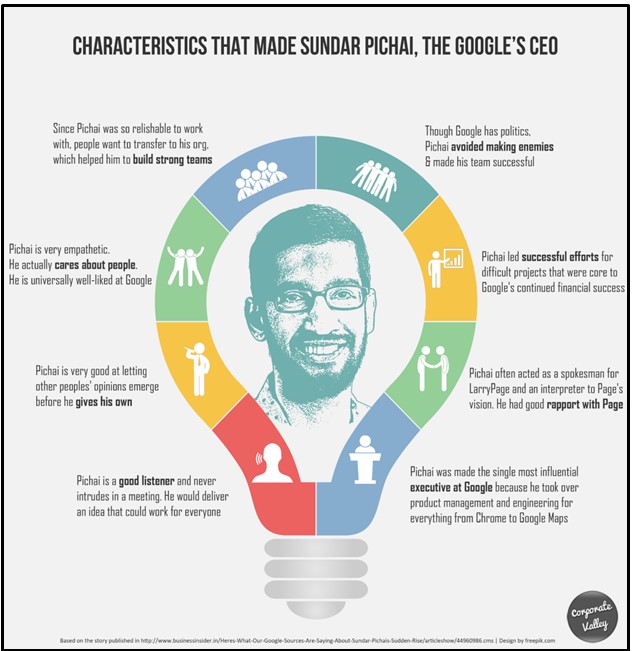
Figure 4: Specific framework of leadership that Sundar Pichai Follow
(Source: Visual, 2021)
Negative elements of skills and behaviour of Sundar Pichai and its impact
A leader cannot always have a valid and impressive response to ethical boundaries. Thus, some situation may take place where the leader’s thought process or style may not match with the employees or any substantial unit.
Therefore, with increase in demand for technology, leaders such as Sundar Pichai are required to assess both positive and negative consequences of such rapid explosion of technology and tackle them effectively by aligning to ethics and business principles.
Google, under leadership of Sundar Pichai, faced unprecedented situation of violation of ethics while implementing AI (Artificial Intelligence) in their renowned system (Lee et al. 2019). http://PERSONAL EFFECTIVENESS AASIGNMENT SAMPLEPolitical scientist of the US, Virginia Eubanks mentioned with ample evidence that the usefulness of AI systems is limited since they are hard to be monitored and would lead to bitter situation.
Since the mentioned person found that poverty-stricken population of Los Angeles and Pittsburgh are facing a financial crisis due to their job being replaced by AI (Tett, 2021).http://PERSONAL EFFECTIVENESS AASIGNMENT SAMPLE In light of these analyses, Mr. Pichai remained unresponsive to change design or configuration of their AI system instead terminated senior resources of the organisation. This increased agitation among employees as their notions are not valued and this shows ineffective leadership of Mr. Pichai that can be marked by an improper decision making approach.
Incident of sudden termination of Margaret Mitchell, Timnit Gebru and other senior employees disclosed incidents of lack of diversity, racism and marginalised freedom of speech in Google (Mukherjee, 2020). http://PERSONAL EFFECTIVENESS AASIGNMENT SAMPLE
The mentioned persons are accused to have breached code of conduct but a series of investigations shows that they are terminated because of criticism and highlighting flaws in Google’s system.
The incident portrays that being CEO of a global renowned organisation, Mr. Pichai failed to evaluate the current situation and map them with future consequences leading to an upsetting workplace situation (BBC, 2021). http://PERSONAL EFFECTIVENESS AASIGNMENT SAMPLEIn this context, Katz’s
Three-Skill Theory on Leadership can be applied where it is mentioned that leadership is conglomeration of three skills such as technical, humanity and conceptual. Imbalance in any of these skills results in ineffective leadership traits delivered to subordinates and this happened in the case of Sundar Pichai.
The CEO lacks conflict resolution skill, analytical and strategic planning skills in terms of employee management and business processing (Obradović et al. 2018).http://PERSONAL EFFECTIVENESS AASIGNMENT SAMPLE
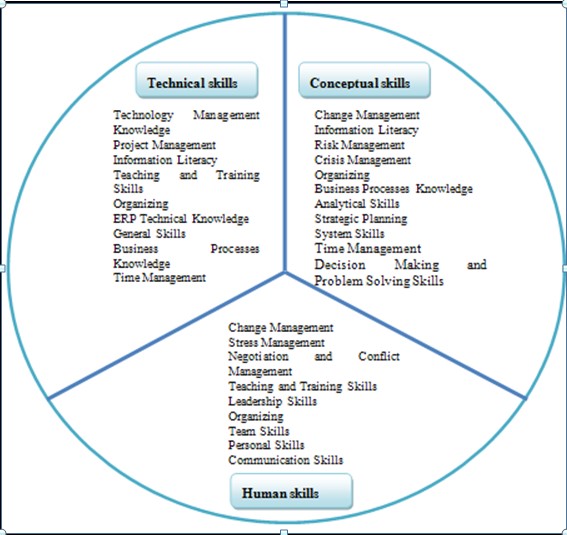
Figure 6: Three exigent leadership skills required for organisation growth
(Source: Obradović et al. 2018)
In the context of negative elements of skills and behaviours, Sundar Pichai has witnessed some criticism in terms of unfavourable labour practices, indiscreet behaviour, unethical business deals, lack of conflict resolution skills and others.
These negative traits of Sundar Pichai directly impact upon the organisation brand reputations along with its strong brand image across the globe.
c. Reflective Statement
Application of personal effectiveness principles
Self assessed development needs about personal effectiveness
Personal effectiveness is largely dependent upon the consequences of self-development based on which an individual might obtain the opportunity of becoming successful across the competitive job market. In this concern, I think that the self-assessed development requirements might include probable areas of improvements in relational skills and characterisation.
In terms of obtaining personal effectiveness, I initiated to follow the Google CEO, Sundar Pichai, with an intention to obtain extensive self-development by improving my internal competitive skills. In this regard, Kolb’s learning cycle theory can be considered.
Kolb is learning cycle theory
The theoretical argument reflects that the learners through interaction with the environment create knowledge.
From this viewpoint, four distinctive stages of this theory can be reflected including “active experimentation, concrete experience, reflective observation and abstract conceptualisation” (Kolb and Kolb, 2018).http://PERSONAL EFFECTIVENESS AASIGNMENT SAMPLE
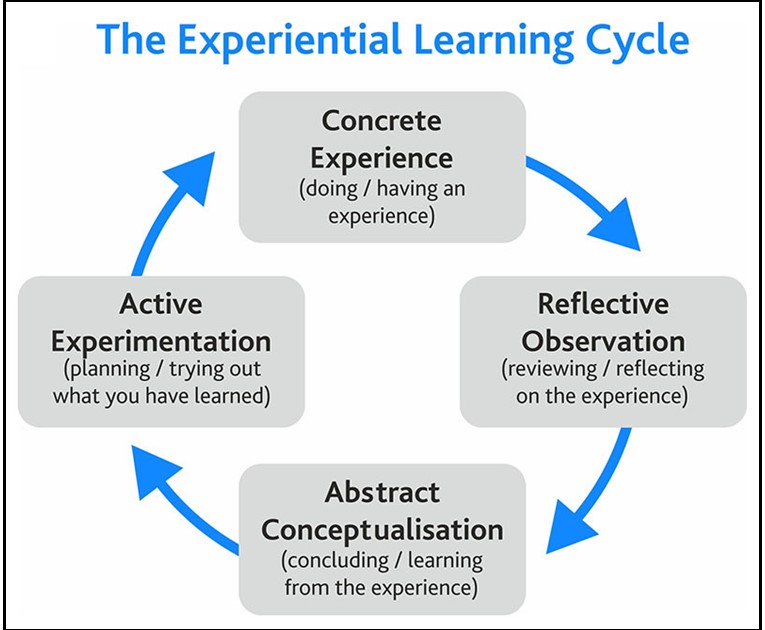
Figure 5: Kolb’s learning cycle
(Source: Kolb and Kolb, 2018)
This learning cycle theory emphasises a cyclic process in order to obtain a distinctive self-learning experience. It also helped me to evaluate the positive aspects of the Google CEO Sundar Pichai due to which he is an effective global leader.
However, it has been helpful for me to critically evaluate the positive consequences from Sundar Pichai’s leadership skills. It is also interrelated with the aspects of personal effectiveness about different competencies and skills enhancement based on which an individual might become successful in the competitive job market.
I also realised the self-development needs with regards to obtaining the skills including self-accountability and trustworthiness, motivational capability, assertive body language, critical thinking attributes and others. Misra and Srivastava (2018) stated that personal effectiveness of an individual is dependent on the maintenance of flexible collaboration and team working competencies in the workplace.
Moreover, I also used to follow the personal skills of Sundar Pichai and the shape of a reflective observation, which disclosed my development needs about the personal effectiveness concern. I saw Sundar Pichai to consider action-oriented judgement in terms of leading Google in an efficient manner. This attribute also supported the critical thinking skills in Sundar Pichai, which helped him to emerge as a personally effective global leader.
On the other hand, I also tried to learn from the experiences, which were generated through reflectively observing the skills of Sundar Pichai. In this aspect, the abstract conceptualization attribute helped me to draw relief and conclusions of myself assessing development needs by reflecting on the prior knowledge.
Ruge and McCormack (2017) stated that an individual should develop internal skills in order to consider employability-reframing assessment for learning in disciplined contexts.
I also began to interpret myself experience by comparing and contrasting the skills of Sundar Pichai with my internal skills. This factor clarified the requirement of enlarging personal effectiveness with regards to my communication skills, critical thinking and decision-making skills and others.
I also think that the aspects of active experimentation are likely to be followed by me in terms of critically applying the knowledgeable concepts in my practical experiences.
Lansdell et al. (2020) stated that professional skill development usually relies on a period of practical experience. In this regard, I need to follow the skills and competencies of Sundar Pichai, which reminds me of the requirement of improving my collaborative skills along with the ability to lead others.
I observed Sundar Pichai to perform in a fabulous manner in terms of motivating others. It also reminded me of the consequences of charismatic leadership from the perspective of Sundar Pichai. However, I also felt the need to develop my leadership skills in order to enlarge myself accountability and credibility for being successful across the competitive job market.
Hence, it can be stated that Kolb’s learning cycle theory has been advantageous for me in terms of critically intercepting the internal skills of Sundar Pichai according to which I was able to justify my self-development needs about personal effectiveness.
On the other hand, the aspects of reflective observation and abstract conceptualisation had also contributed largely in terms of transforming my concrete experiences into active experimentation.
According to Subekti (2020), active experimentation can clarify the skills effectiveness of an individual along with disclosing probable areas of self-development needs. It might also develop my personal effectiveness by improving my communication skills, critical thinking ability and others.
These skills might add a fair value to my personal effectiveness. Because of this, I might be able to enlarge my credibility in terms of becoming successful throughout the competitive job market.
Strategies need to be adopted for addressing personal development needs about personal effectiveness
Different aspects are likely to be considered by me in order to consider efficient personal development and effectiveness. In this regard, I need to undertake a set of strategies comprising different skills with regards to personal development.
However, the consequences of Sundar Pichai’s leadership skills have been largely confronted by me, which also clarified the requirement of personal development from my perspective with regards to skills enhancement.
In this context, the trait theory of leadership can be commenced in order to clarify the strategies to consider my personal development needs.
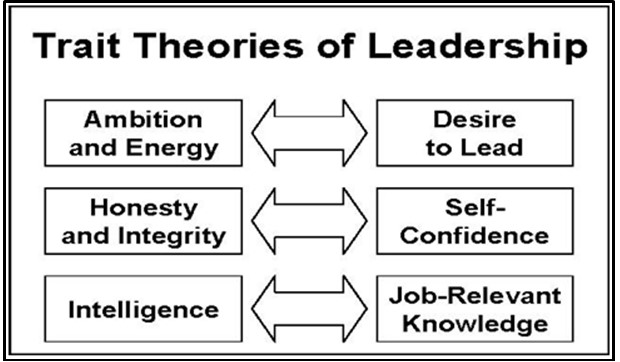
Figure 6: Trait theory of leadership
(Source: Harrison, 2018)
The trait theory of leadership reveals that certain traits are shaped from assured behavioural patterns where individuals are classically born with leadership traits (Harrison, 2018). http://PERSONAL EFFECTIVENESS AASIGNMENT SAMPLE
Dissimilar common traits of a capable leader can be suspected as per this theory counting accountability and trustworthiness, assertiveness and decisiveness, critical thinking ability and motivational capability, decision making skills and communication, action oriented judgement, eagerness to undertake responsibility and others (Chow et al. 2017).http://PERSONAL EFFECTIVENESS AASIGNMENT SAMPLE
All the mentioned traits can be noticed among the leadership abilities of Sundar Pichai. This factor has encouraged me to follow the leadership skills of Sundar Pichai. I also initiated the strategy of completely following the skills of Sundar Pichai in order to concentrate on my individual progress requirements with regards to personal effectiveness.
I think that I should pay attention to develop my critical thinking ability based on which I might be able to consider both the positive and negative consequences associated with a situation or context.
This critical thinking ability might also add a greater value to develop my decision-making attributes. With the help of extensive decision-making concerns, I might be able to enlarge both my professional and personal effectiveness.
Augustine-Shaw and Hachiya (2017) stated that empowerment of decision-making skills might be beneficial for enhancing self-leadership capabilities. Based on this aspect I might add a greater value to my own development aspects to enhance my credibility across the competitive job market.
Moreover, I also believe that I need to undertake the strategy of considering action oriented judgement. This attribute is completely integrated with the generation of situational awareness according to which my decision-making skills might be empowered with greater accuracy.
It can also contribute to me with the maintenance of transparency with regards to my decision-making attributes as an integral part of my personal effectiveness concern.
I had noticed the Google CEO Sundar Pichai to generate trustworthiness in front of subordinates. This factor discloses the accountability of Sundar Pichai as an efficient leader.
I think that I should also undertake the strategy of enlarging my accountability and credibility in the workplace for addressing my personal development requirements. In this regard, I will have to consider adequate eagerness to undertake their responsibilities.
This factor might be beneficial for me to enhance my accountability as an efficient leader. Apart from that, assertive body language is likely to be maintained by me as an integral part of my personal development strategies.
Omura et al. (2017) stated that assertiveness may develop both personal and professional growth of an individual. This assertiveness can also enlarge my accountability in the competitive job market with distinctive self-confidence.
The most significant strategy in this concern reflects the development of communication and collaboration skills. I will have to focus upon improving my communication skills to a fair extent based on which I might be able to flexibly interrelate with others.
Moreover, this attribute can also support my collaboration skills. Sreena and Ilankumaran (2018) stated that communication skills could undertake a cognitive based approach to empower self-development needs. Because of this, I could obtain enhanced credibility in terms of enlarging both personal and professional effectiveness.
I should also consider the strategy of developing my capability of motivating others. This attribute is directly interrelated with my leadership skills enhancement with an assertive body language.
The aspect of decisiveness is also interrelated with this context, which reminds me of the personal skills development with regards to leading others.
On the other hand, I also think that I should develop personal attributes and personality traits with the involvement of self-improvement process.
This self-improvement process will focus on empowering my internal knowledge level, capabilities and self-awareness. Based on this attribute, I might be able to reach my personal goals of obtaining data improvement with regards to my personal effectiveness concerns.
d. Conclusion
In relation to the above discussion, leadership skills play a crucial role to lead a specific team and influence them in such a way so that they could proactively contribute towards obtaining organisational common goals.
Every individual working within an organisation is indeed to incorporate their full potential towards their respective duties that maximise their opportunities to foster their professional career along with business growth.
Technological expansion and rapid growth of use of software and various instruments in various sectors have increased dramatically across the globe due to increase in pace of business activities.
The discussion shows that most of the entrepreneurs follow the skills and behaviour that Sundar Pichai adopts to enhance his career growth along with organisational competitiveness.
In addition to this, it is also found that Sundar Pichai has the skills to connect within team members emotionally and he shows values to the activity made by his team members.
This type of behaviour towards employees forms strength to Pichai in terms of enhancing overall organisational growth and productivity. Despite of identified negative elements of Sundar Pichai’s skills and behaviour, the effective leadership skills, coordination and communication, along with interpersonal skills that Sundar Pichai portrays can serve as beneficial in terms of developing personal effectiveness.
References
Ahmad, S., 2018. Can ethical leadership inhibit workplace bullying across East and West: Exploring cross-cultural interactional justice as a mediating mechanism. European Management Journal, 36(2), pp.223-234.
Augustine-Shaw, D. and Hachiya, R., 2017. Strengthening decision-making skills of new school leaders through mentoring and service. Servant leadership: theory & practice, 4(1), p.3.
BBC, 2021. Margaret Mitchell: Google fires AI ethics founder. [Online]. Available at <https://www.bbc.com/news/technology-56135817> [Accessed on 23 May 2021]
Chow, T.W., Salleh, L.M. and Ismail, I.A., 2017. Lessons from the major leadership theories in comparison to the competency theory for leadership practice. Journal of Business and Social Review in Emerging Economies, 3(2), pp.147-156.
Cote, R., 2017. A comparison of leadership theories in an organisational environment. International Journal of Business Administration, 8(5), pp.28-35.
Gill, P., 2019. 10 ways Sundar Pichai forged his mark at Google in 15 years. [Online]. Available at: < https://www.businessinsider.in/thelife/personalities/news/10-ways-sunder-pichai-forged-his-mark-at-google-in-15-years/articleshow/72360619.cms> [Accessed on 23 May 2021]
Harrison, C., 2018. Leadership research and theory. In Leadership Theory and Research (pp. 15-32). Palgrave Macmillan, Cham.
Kolb, A. and Kolb, D., 2018. Eight important things to know about the experiential learning cycle. Australian educational leader, 40(3), pp.8-14.
Lansdell, P., Marx, B. and Mohammadali-Haji, A., 2020. Professional skills development during a period of practical experience: Perceptions of accounting trainees. South African Journal of Accounting Research, 34(2), pp.115-139.
Lee, J., Suh, T., Roy, D. and Baucus, M., 2019. Emerging technology and business model innovation: the case of artificial intelligence. Journal of Open Innovation: Technology, Market, and Complexity, 5(3), p.44.
Lee, Y. and Li, J.Y.Q., 2020. The value of internal communication in enhancing employees’ health information disclosure intentions in the workplace. Public relations review, 46(1), p.101872.
Magazine, 2021. Key Skills of Sundar Pichai we need to have to become successful. [Online]. Available at: <https://magazine.xpert.tv/key-skills-of-sundar-pichai-we-need-to-have-to-become-successful/> [Accessed on 23 May 2021]
Misra, S. and Srivastava, K.B., 2018. Team-building competencies, personal effectiveness and job satisfaction: The mediating effect of transformational leadership and technology. Management and Labour Studies, 43(1-2), pp.109-122.
Mlitz, K., 2021. IT industry growth rate forecast worldwide from 2018 to 2023, by segment. [Online]. Available at: < https://www.statista.com/statistics/967095/worldwide-it-industry-growth-rate-forecast-segment/ > [Accessed on 23 May 2021]
Mukherjee, A.S., 2020. Leading in the Digital World: How to Foster Creativity, Collaboration, and Inclusivity. Cambridge: MIT Press.
Nahavandi, A. and Krishnan, H.A., 2017. Indo-European leadership (IEL): A non-western leadership perspective. In Global and culturally diverse leaders and leadership. Emerald Publishing Limited, pp. 110-115.
Obradović, V., Montenegro, A. and Bjelica, D., 2018. Digital era and project manager’s competencies. European Project Management Journal, 8(1), pp.4-9.
Omura, M., Maguire, J., Levett-Jones, T. and Stone, T.E., 2017. The effectiveness of assertiveness communication training programs for healthcare professionals and students: A systematic review. International journal of nursing studies, 76, pp.120-128.
Prospursity, 2021. Key skills of Sundar Pichai: We need to learn to be successful. [Online]. Available at<https://prospursity.com/2020/05/03/key-skills-of-sundar-pichai-we-need-to-learn-to-be-successful/#:~:text=Communication%3A%20Sundar%20 Pichai%20is%20 known,improve%20his%20 communication%20skills%20successfully.&text=Inclusive%20 Leadership%3A%20Sundar%20Pichai%20is,who%20 believes%20in%20empowering%20people.> [Accessed on 23 May 2021]
Randel, A.E., Galvin, B.M., Shore, L.M., Ehrhart, K.H., Chung, B.G., Dean, M.A. and Kedharnath, U., 2018. Inclusive leadership: Realizing positive outcomes through belongingness and being valued for uniqueness. Human Resource Management Review, 28(2), pp.190-203.
Ruge, G. and McCormack, C., 2017. Building and construction students’ skills development for employability–reframing assessment for learning in discipline-specific contexts. Architectural Engineering and Design Management, 13(5), pp.365-383.
Singh, S., 2020. Here’s what you can learn from Sundar Pichai’s success story. [Online]. Available at: <https://www.cnbctv18.com/entrepreneurship/google-ceo-sundar-pichai-shares-a-few-success-lessons-2684661.htm> [Accessed on 23 May 2021]
Smith, E.F., Gilmer, D.O. and Stockdale, M.S., 2019. The importance of culture and support for workplace flexibility: An ecological framework for understanding flexibility support structures. Business Horizons, 62(5), pp.557-566.
Sreena, S. and Ilankumaran, M., 2018. Developmental Speaking as A Strategy to Enhance Communication Skills–A Cognitive Based Approach. International Journal of Engineering & Technology, 7, pp.613-618.
Subekti, A.S., 2020. Undergraduate Novice Researchers’ Experiences in Conducting Mini-Research in Education: Kolb Learning Cycle. | IRJE| Indonesian Research Journal in Education|, pp.448-465.
Tett, G., 2021. After Google drama, Big Tech must fight against AI bias. [Online]. Available at: < https://www.ft.com/content/ef0c61ab-240d-42b1-af3c-aca2e4896bd2> [Accessed on 23 May 2021]
Visual, 2021. Characteristics of Sundar Pichai that made him become Google’s CEO. [Online]. Available at: <https://visual.ly/community/Infographics/business/characteristics-made-sundar-pichai-googles-ceo> [Accessed on 23 May 2021]
Voronina, E.V., Kungurova, I.M. and Slizkova, E.V., 2018. Leadership skills as a key to personal effectiveness. In V Рождественские чтения (pp. 94-96).
Wachira, J.G., Karanja, K. and Iravo, M., 2018. Influence of Affiliative Leadership Style on Organisational Performance of Commercial State Corporations in Kenya. European Journal of Business and Strategic Management, 3(3), pp.17-28.


